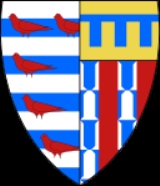
Pembroke College, Cambridge
Encyclopedia
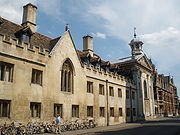
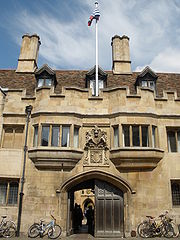
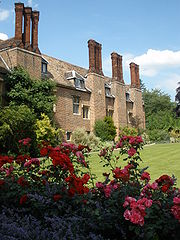
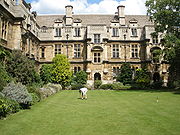
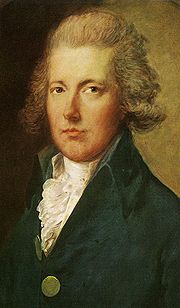
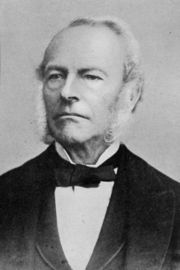
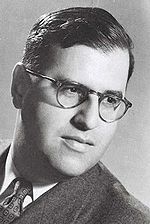
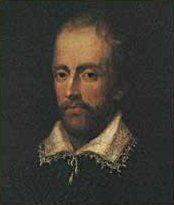
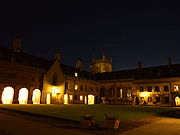
Colleges of the University of Cambridge
This is a list of the colleges within the University of Cambridge. These colleges are the primary source of accommodation for undergraduates and graduates at the University and at the undergraduate level have responsibility for admitting students and organising their tuition. They also provide...
of the University of Cambridge
University of Cambridge
The University of Cambridge is a public research university located in Cambridge, United Kingdom. It is the second-oldest university in both the United Kingdom and the English-speaking world , and the seventh-oldest globally...
, England.
The college has over seven hundred students and fellow
Fellow
A fellow in the broadest sense is someone who is an equal or a comrade. The term fellow is also used to describe a person, particularly by those in the upper social classes. It is most often used in an academic context: a fellow is often part of an elite group of learned people who are awarded...
s, and is the third oldest college of the university. Physically, it is one of the university's larger colleges, with buildings from almost every century since its founding, as well as extensive and immaculately maintained gardens. The college is a financially well-to-do institution, with assets of around £115 million in 2010. Pembroke has a level of academic performance among the highest of all the Cambridge colleges, with an average rank of 6.7 out of 29 in the unofficial Tompkins Table
Tompkins Table
The Tompkins Table is an annual ranking that lists the Colleges of the University of Cambridge in order of their undergraduate students' performances in that year's examinations...
.
Pembroke College is home to the first chapel designed by Sir Christopher Wren
Christopher Wren
Sir Christopher Wren FRS is one of the most highly acclaimed English architects in history.He used to be accorded responsibility for rebuilding 51 churches in the City of London after the Great Fire in 1666, including his masterpiece, St. Paul's Cathedral, on Ludgate Hill, completed in 1710...
and is also one of the Cambridge colleges to have educated a British prime minister, William Pitt the Younger
William Pitt the Younger
William Pitt the Younger was a British politician of the late 18th and early 19th centuries. He became the youngest Prime Minister in 1783 at the age of 24 . He left office in 1801, but was Prime Minister again from 1804 until his death in 1806...
. The college library, one of the finest in the university, with a Victorian neo-gothic clock tower, is endowed with an original copy of the first encyclopaedia to contain printed diagrams. The college's current master, Sir Richard Dearlove
Richard Dearlove
Sir Richard Billing Dearlove, KCMG, OBE was head of the British Secret Intelligence Service from 1999 until 6 May 2004.-Career:...
, was previously the head of the United Kingdom's Secret Intelligence Service
Secret Intelligence Service
The Secret Intelligence Service is responsible for supplying the British Government with foreign intelligence. Alongside the internal Security Service , the Government Communications Headquarters and the Defence Intelligence , it operates under the formal direction of the Joint Intelligence...
.
History
On Christmas EveChristmas
Christmas or Christmas Day is an annual holiday generally celebrated on December 25 by billions of people around the world. It is a Christian feast that commemorates the birth of Jesus Christ, liturgically closing the Advent season and initiating the season of Christmastide, which lasts twelve days...
1347, Edward III
Edward III of England
Edward III was King of England from 1327 until his death and is noted for his military success. Restoring royal authority after the disastrous reign of his father, Edward II, Edward III went on to transform the Kingdom of England into one of the most formidable military powers in Europe...
granted Marie de St Pol
Marie de St Pol
Marie de St Pol was the wife of Aymer de Valence, the Earl of Pembroke, and is best known as the foundress of Pembroke College, Cambridge....
, widow of the Earl of Pembroke
Aymer de Valence, 2nd Earl of Pembroke
Aymer de Valence, 2nd Earl of Pembroke was a Franco-English nobleman. Though primarily active in England, he also had strong connections with the French royal house. One of the wealthiest and most powerful men of his age, he was a central player in the conflicts between Edward II of England and...
, the licence for the foundation of a new educational establishment in the young university at Cambridge
Cambridge
The city of Cambridge is a university town and the administrative centre of the county of Cambridgeshire, England. It lies in East Anglia about north of London. Cambridge is at the heart of the high-technology centre known as Silicon Fen – a play on Silicon Valley and the fens surrounding the...
. The Hall of Valence Mary, as it was originally known, was thus founded to house a body of students and fellows.
The statutes were notable in that they both gave preference to students born in France who had already studied elsewhere in England, and that they required students to report fellow students if they indulged in excessive drinking or visited disreputable houses.
The college was later renamed Pembroke Hall, and finally became Pembroke College in 1856.
Buildings
The first buildings comprised a single courtCourtyard
A court or courtyard is an enclosed area, often a space enclosed by a building that is open to the sky. These areas in inns and public buildings were often the primary meeting places for some purposes, leading to the other meanings of court....
(now called Old Court) containing all the component parts of a college — chapel, hall, kitchen and buttery, master's lodgings, students' rooms — and the statutes provided for a manciple
Manciple
A manciple is a person in charge of the purchase and storage of food at an institution such as a college, monastery, or court of law. Manciples were sometimes also in charge of catering more generally, including food preparation...
, a cook, a barber and a laundress. Both the founding of the college and the building of the city's first college Chapel (1355) required the grant of a papal bull
Papal bull
A Papal bull is a particular type of letters patent or charter issued by a Pope of the Catholic Church. It is named after the bulla that was appended to the end in order to authenticate it....
.
The original court was the university's smallest at only 95 feet (29 m) by 55 feet (16.8 m), but was enlarged to its current size in the nineteenth century by demolishing the south range.
The college's gatehouse, however, is original and is the oldest in Cambridge. The Hall was rebuilt in 1875–6 by Alfred Waterhouse
Alfred Waterhouse
Alfred Waterhouse was a British architect, particularly associated with the Victorian Gothic Revival architecture. He is perhaps best known for his design for the Natural History Museum in London, and Manchester Town Hall, although he also built a wide variety of other buildings throughout the...
after he had declared the medieval Hall unsafe.
The original Chapel now forms the Old Library and has a striking seventeenth century plaster ceiling, designed by Henry Doogood, showing birds flying overhead. Around the Civil War
English Civil War
The English Civil War was a series of armed conflicts and political machinations between Parliamentarians and Royalists...
, one of Pembroke's fellows and Chaplain to the future Charles I
Charles I of England
Charles I was King of England, King of Scotland, and King of Ireland from 27 March 1625 until his execution in 1649. Charles engaged in a struggle for power with the Parliament of England, attempting to obtain royal revenue whilst Parliament sought to curb his Royal prerogative which Charles...
, Matthew Wren
Matthew Wren
"Matthew Wren" is also a British actor who appeared in BBC children's show Trapped!.Matthew Wren was an influential English clergyman and scholar.-Life:...
, was imprisoned by Oliver Cromwell
Oliver Cromwell
Oliver Cromwell was an English military and political leader who overthrew the English monarchy and temporarily turned England into a republican Commonwealth, and served as Lord Protector of England, Scotland, and Ireland....
. On his release after eighteen years he fulfilled a promise by hiring his nephew Christopher Wren
Christopher Wren
Sir Christopher Wren FRS is one of the most highly acclaimed English architects in history.He used to be accorded responsibility for rebuilding 51 churches in the City of London after the Great Fire in 1666, including his masterpiece, St. Paul's Cathedral, on Ludgate Hill, completed in 1710...
to build a great Chapel in his former college. The resulting Chapel was consecrated on St Matthew's Day, 1665, and the eastern end was extended by George Gilbert Scott
George Gilbert Scott
Sir George Gilbert Scott was an English architect of the Victorian Age, chiefly associated with the design, building and renovation of churches, cathedrals and workhouses...
in 1880, when it was consecrated on the Feast of the Annunciation.
An increase in membership over the last 150 years saw a corresponding increase in building activity. As well as the Hall, Waterhouse built a new range of rooms, Red Buildings (1871–2), in French Renaissance style, designed a new Master's Lodge on the site of Paschal Yard (1873, later to become N staircase), pulled down the old Lodge and the south range of Old Court to open a vista to the Chapel, and finally built a new Library (1877–8) in the continental Gothic style.
Waterhouse was dismissed as architect in 1878 and succeeded by George Gilbert Scott, who, after extending the Chapel, provided additional accommodation with the construction of New Court in 1881, with letters on a series of shields along the string course above the first floor spelling out the Psalm text "Nisi Dominus aedificat domum…" ("Except the Lord build the house, their labour is but vain that build it").
Building work continued into the 20th century with W. D. Caröe as architect. He added Pitt Building (M staircase) between Ivy Court and Waterhouse's Lodge, and extended New Court with the construction of O staircase on the other side of the Lodge. He linked his two buildings with an arched stone screen, Caröe Bridge, along Pembroke Street
Pembroke Street, Cambridge
Pembroke Street is a street in central Cambridge, England. It runs between Downing Street and Tennis Court Road at the eastern end and a junction with Trumpington Street at the western end...
in a late Baroque
Baroque architecture
Baroque architecture is a term used to describe the building style of the Baroque era, begun in late sixteenth century Italy, that took the Roman vocabulary of Renaissance architecture and used it in a new rhetorical and theatrical fashion, often to express the triumph of the Catholic Church and...
style, the principal function of which was to act as a bridge by which undergraduates might cross the Master's forecourt at first-floor level from Pitt Building to New Court without leaving the College or trespassing in what was then the Fellows' Garden.
In 1926, as the Fellows had become increasingly disenchanted with Waterhouse's Hall, Maurice Webb
Maurice Webb
Maurice Everett Webb was an English architect of the early 20th century, who started his architectural career working for his famous architect father, Sir Aston Webb, the practice trading as Sir Aston Webb and Son for some years.-Projects:...
was brought in to remove the open roof, put in a flat ceiling and add two storeys of sets above. The wall between the Hall and the Fellows' Parlour was taken down, and the latter made into a High Table dais. A new Senior Parlour was then created on the ground floor of Hitcham Building. The remodelling work was completed in 1949 when Murrary Easton replaced the Gothic tracery of the windows with a simpler design in the style of the medieval Hall.
In 1933 Maurice Webb built a new Master's Lodge in the south-east corner of the College gardens, on land acquired from Peterhouse in 1861. Following the war, further accommodation was created with the construction in 1957 of Orchard Building, so called because it stands on part of the Foundress's orchard. Finally, in a move to accommodate the majority of junior members on the College site rather than in hostels in the town, in the 1990s Eric Parry designed a new range of buildings on the site of the Master's Lodge, with a new Lodge at the west end. "Foundress Court" was opened in 1997 in celebration of the College's 650th Anniversary. In 2001 the Library was extended to the east and modified internally.
Pembroke's enclosed grounds also house some particularly well-kept gardens, sporting a huge array of carefully selected vegetation. Highlights include "The Orchard" (a patch of semi-wild ground in the centre of the college), an impressive row of Plane Trees
Platanus
Platanus is a small genus of trees native to the Northern Hemisphere. They are the sole living members of the family Platanaceae....
and an immaculately kept bowling green
Bowling green
A bowling green is a finely-laid, close-mown and rolled stretch of lawn for playing the game of lawn bowls.Before 1830, when Edwin Beard Budding invented the lawnmower, lawns were often kept cropped by grazing sheep on them...
, re-turfed in 1996, which is reputed to be among the oldest in continual use in Europe.
Famous alumni of Pembroke College
See also :Category:Alumni of Pembroke College, Cambridge{|{|border="2" cellpadding="1" cellspacing="0" style="margin: 1em 1em 1em 0; border: 1px #aaa solid; border-collapse: collapse; font-size: 95%;" class="sortable"
!Name
!Born
!Died
!class="unsortable"|Occupation
|-
|Karan Thapar
Karan Thapar
Karan Thapar is one of India's noted television commentators and interviewers. He is the youngest child of General P. N. Thapar and Mrs. Bimla Thapar.-Education:...
|1955
|
|Writer, Journalist, Broadcaster, Editor
|-
|-
|Lancelot Andrewes
Lancelot Andrewes
Lancelot Andrewes was an English bishop and scholar, who held high positions in the Church of England during the reigns of Queen Elizabeth I and King James I. During the latter's reign, Andrewes served successively as Bishop of Chichester, Ely and Winchester and oversaw the translation of the...
|1555
|1626
|Master, Dean of Westminster, Bishop of Chichester, Ely, Winchester
|-
|C.F. Andrews
|1871
|1940
|Author and supporter of Indian Independence
|-
|David Armitage Bannerman
David Armitage Bannerman
David Armitage Bannerman OBE, MA, SD , Hon. LL.D. , FRSE, FZS was a British ornithologist.-Biography:After graduating from Pembroke College, Cambridge in 1909, Bannerman travelled extensively in Africa, the West Indies, South America and the Atlantic Islands.Rejected on health grounds by the...
|1886
|1979
|Ornithologist
|-
|John Bradford
John Bradford
John Bradford was a prebendary of St. Paul's. He was an English Reformer and martyr best remembered for his utterance "'There, but for the grace of God, goes John Bradford". These words were uttered by Bradford while imprisoned in the Tower of London when he saw a criminal on his way to execution;...
|1510
|1550
|Fellow, prebendary of St. Paul's, Martyr
|-
|Clive Betts
Clive Betts
Clive James Charles Betts is a British Labour Party politician, who was the Member of Parliament for Sheffield Attercliffe from 1992 to 2010, when he became Member of Parliament for Sheffield South East.- Early life :...
|1950
|
|British politician
|-
|Tim Brooke-Taylor
Tim Brooke-Taylor
Timothy Julian Brooke-Taylor OBE is an English comic actor. He became active in performing in comedy sketches while at Cambridge University, and became President of the Footlights club, touring internationally with the Footlights revue in 1964...
|1940
|
|Comedian
|-
|William Burkitt
William Burkitt
William Burkitt was a biblical expositor and vicar in Dedham, Essex, England....
|1650
|1703
|New Testament commentator, Vicar & Lecturer of Dedham, Essex
|-
|Roger Bushell
Roger Bushell
Squadron Leader Roger Joyce Bushell RAF was a South African-born British Auxiliary Air Force pilot who organised and led the famous escape from the Nazi prisoner of war camp, Stalag Luft III. He was a victim of the Stalag Luft III murders. The escape was used as the basis for the film The Great...
|1910
|1944
|Leader of "The Great Escape"
|-
|"RAB" Butler
|1902
|1982
|British politician
|-
|Peter Cook
Peter Cook
Peter Edward Cook was an English satirist, writer and comedian. An extremely influential figure in modern British comedy, he is regarded as the leading light of the British satire boom of the 1960s. He has been described by Stephen Fry as "the funniest man who ever drew breath," although Cook's...
|1937
|1995
|Comedian
|-
|Maurice Dobb
Maurice Dobb
Maurice Herbert Dobb , was a British Marxist economist, and a lecturer 1924-1959 and Reader 1959-1976 at Cambridge University and a Fellow of Trinity College, Cambridge 1948-1976.-Life:...
|1900
|1976
|Economist
|-
|Ray Dolby
Ray Dolby
Ray Dolby is the American engineer and inventor of the noise reduction system known as Dolby NR. He was also a co-inventor of video tape recording while at Ampex. He is the founder of Dolby Laboratories.-Biography:...
|1933
|
|Inventor
|-
|Timothy Dudley-Smith
Timothy Dudley-Smith
Timothy Dudley-Smith OBE is an English hymnwriter and a retired bishop of the Church of England.Born in Manchester, England, he was educated at Tonbridge School and Pembroke College, Cambridge. He was ordained deacon in 1950 and priest in 1951. He served as Archdeacon of Norwich 1973-81 and ...
|1926
|
|Hymnwriter and clergyman of the Church of England
|-
|Abba Eban
Abba Eban
Abba Eban was an Israeli diplomat and politician.In his career he was Israeli Foreign Affairs Minister, Education Minister, Deputy Prime Minister, and ambassador to the United States and to the United Nations...
|1915
|2002
|Statesman
|-
|Edward James Eliot
Edward James Eliot
The Honourable Edward James Eliot was an English Member of Parliament.Eliot was born in Cornwall, the son of Edward Craggs-Eliot , politician, created Baron Eliot in 1784....
|1758
|1797
|British politician
|-
|William Eliot
William Eliot, 2nd Earl of St Germans
William Eliot, 2nd Earl of St Germans , known as William Elliot until 1823, was a British diplomat and politician....
|1767
|1845
|British politician
|-
|Archibald Fargus
Archibald Fargus
Rev. Archibald Hugh Conway Fargus M.A. was an English cricketer who was a right-handed batsman who bowled right-arm fast...
|1878
|1963
|Cricketer, scholar, clergyman
|-
|William Fowler
William Alfred Fowler
William Alfred "Willy" Fowler was an American astrophysicist and winner of the Nobel Prize for Physics in 1983. He should not be confused with the British astronomer Alfred Fowler....
|1911
|1995
|Nobel prize winner
|-
|Arthur Gilligan
Arthur Gilligan
Arthur Edward Robert Gilligan was an English cricketer who played for Cambridge University, Sussex, Surrey and England....
|1894
|1976
|England cricket captain
|-
|Alexander Grantham
Alexander Grantham
Sir Alexander William George Herder Grantham, GCMG was a British colonial administrator who governed Hong Kong and Fiji.-Early life, colonial administration career:...
|1899
|1978
|Governor of Hong Kong
|-
|Thomas Gray
Thomas Gray
Thomas Gray was a poet, letter-writer, classical scholar and professor at Cambridge University.-Early life and education:...
|1716
|1771
|Poet
|-
|Stephen Greenblatt
Stephen Greenblatt
Stephen Jay Greenblatt is a literary critic, theorist and scholar.Greenblatt is regarded by many as one of the founders of New Historicism, a set of critical practices that he often refers to as "cultural poetics"; his works have been influential since the early 1980s when he introduced the term...
|1943
|
|Literary critic, pioneer of New Historicism
New Historicism
New Historicism is a school of literary theory, grounded in critical theory, that developed in the 1980s, primarily through the work of the critic Stephen Greenblatt, and gained widespread influence in the 1990s....
|-
|Rupert Gwynne
Rupert Gwynne
Rupert Sackville Gwynne , was a British Conservative politician. He was Member of Parliament for Eastbourne from 1910 to 1924.-Early years:...
|1871
|1924
|MP for Eastbourne 1910–1924.
|-
|Naomie Harris
Naomie Harris
Naomie Melanie Harris is an English screen actress. She is best known for her starring role as Selena in 28 Days Later, as well as her supporting turn as Tia Dalma/Calypso in the second and third Pirates of the Caribbean films...
|1976
|
|Actress
|-
|Tom Harrisson
Tom Harrisson
Major Tom Harnett Harrisson DSO OBE was a British polymath. In the course of his life he was an ornithologist, explorer, journalist, broadcaster, soldier, guerrilla, ethnologist, museum curator, archaeologist, documentarian, film-maker, conservationist, and writer...
|1911
|1976
|Ornithologist, anthropologist, soldier, co-founder of Mass-Observation Project
|-
|Samuel Harsnett
Samuel Harsnett
Samuel Harsnett , born Samuel Halsnoth, was an English writer on religion and Archbishop of York from 1629.- Early life :...
|1561
|1631
|Master, Vice-Chancellor of the University of Cambridge, later Archbishop of York
Archbishop of York
The Archbishop of York is a high-ranking cleric in the Church of England, second only to the Archbishop of Canterbury. He is the diocesan bishop of the Diocese of York and metropolitan of the Province of York, which covers the northern portion of England as well as the Isle of Man...
and theological writer
|-
|Oliver Heald
Oliver Heald
Oliver Heald is a British barrister and Conservative politician, and the Member of Parliament for North East Hertfordshire.-Background:...
|1954
|
|British politician
|-
|Ted Hughes
Ted Hughes
Edward James Hughes OM , more commonly known as Ted Hughes, was an English poet and children's writer. Critics routinely rank him as one of the best poets of his generation. Hughes was British Poet Laureate from 1984 until his death.Hughes was married to American poet Sylvia Plath, from 1956 until...
|1930
|1998
|Poet
|-
|Eric Idle
Eric Idle
Eric Idle is an English comedian, actor, author, singer, writer, and comedic composer. He was as a member of the British comedy group Monty Python, a member of the The Rutles on Saturday Night Live and author of the play, Spamalot....
|1943
|
|Entertainer
|-
|Koyata Iwasaki
|1879
|1945
|4th President of the Mitsubishi
Mitsubishi
The Mitsubishi Group , Mitsubishi Group of Companies, or Mitsubishi Companies is a Japanese multinational conglomerate company that consists of a range of autonomous businesses which share the Mitsubishi brand, trademark and legacy...
Zaibatsu
Zaibatsu
is a Japanese term referring to industrial and financial business conglomerates in the Empire of Japan, whose influence and size allowed for control over significant parts of the Japanese economy from the Meiji period until the end of World War II.-Terminology:...
|-
|Clive James
Clive James
Clive James, AM is an Australian author, critic, broadcaster, poet and memoirist, best known for his autobiographical series Unreliable Memoirs, for his chat shows and documentaries on British television and for his prolific journalism...
|1939
|
|Novelist
|-
|Humphrey Jennings
Humphrey Jennings
Frank Humphrey Sinkler Jennings was an English documentary filmmaker and one of the founders of the Mass Observation organization...
|1907
|1950
|Film-maker
|-
|Bryan Keith-Lucas
Bryan Keith-Lucas
Bryan Keith-Lucas CBE was an English political scientist.-Education:...
|1912
|1996
|Political scientist
|-
|Emma Johnson
Emma Johnson
Emma Johnson may refer to:* Emma Johnson , British clarinettist, winner of BBC Young Musician of the Year, 1984* Emma Johnson , Australian swimmer, won bronze at the 1996 Summer Olympics...
|1966
|
|Clarinetist
|-
|David MacMyn
David MacMyn
Dr David James MacMyn TD, BA, MB, BCHIR was a rugby union international who represented Scotland from 1925 to 1928 later becoming president of the Scottish Rugby Union. He also practiced as a surgeon.-Early life:...
|1903
|1978
|Rugby union international (Scotland and Lions) player and administrator
|-
|Sir Henry James Sumner Maine
|1822
|1888
|Jurist and Historian
|-
|Peter May
|1929
|1994
|Cricketer
|-
|D. H. Mellor
|1938
|
|Philosopher
|-
|Tom Morris
Tom Morris (director)
Tom Morris is a British theatre director, writer and producer. He was the Associate Director at the National Theatre in London, before taking over as Artistic Director of the Bristol Old Vic theatre in 2009.-Early life:...
|
|
|Theatre director and producer
|-
|David Munrow
David Munrow
David Munrow was a British musician and early music historian.- Biography and career :Munrow was born in Birmingham and was the son of Birmingham University dance teacher Hilda Norman Munrow and Albert Davis 'Dave' Munrow, a Birmingham University lecturer and physical education instructor who...
|1942
|1976
|Musician, composer, music historian
|-
|Richard Murdoch
Richard Murdoch
Richard Bernard Murdoch was a British comedic radio, film and television performer.Richard Bernard Murdoch attended Charterhouse School. He then appeared in Footlights whilst a student at Pembroke College, Cambridge...
|1907
|1990
|Actor, comedian
|-
|Bill Oddie
Bill Oddie
William "Bill" Edgar Oddie OBE is an English author, actor, comedian, artist, naturalist and musician, who became famous as one of The Goodies....
|1941
|
|Comedian, Ornithologist
|-
|William Pitt
William Pitt the Younger
William Pitt the Younger was a British politician of the late 18th and early 19th centuries. He became the youngest Prime Minister in 1783 at the age of 24 . He left office in 1801, but was Prime Minister again from 1804 until his death in 1806...
|1759
|1806
|British politician
|-
|Rodney Porter
|1917
|1985
|Biochemist
|-
|George Maxwell Richards
George Maxwell Richards
George Maxwell Richards, TC, CM is the fourth President of the Republic of Trinidad and Tobago. A chemical engineer by training, Richards was Principal of the St. Augustine Campus of the University of the West Indies in Trinidad in 1996. He previously worked for Shell Trinidad Ltd. before...
|1931
|
|President of Trinidad and Tobago
|-
|Nicholas Ridley
Nicholas Ridley (martyr)
Nicholas Ridley was an English Bishop of London. Ridley was burned at the stake, as one of the Oxford Martyrs, during the Marian Persecutions, for his teachings and his support of Lady Jane Grey...
|c.1502
|1555
|Bishop of London, Martyr
|-
|Edmund Grindal
Edmund Grindal
Edmund Grindal was an English church leader who successively held the posts of Bishop of London, Archbishop of York and Archbishop of Canterbury during the reign of Elizabeth I of England.-Early life to the death of Edward VI:...
|c.1519
|1571
|Archbishop of Canterbury, Archbishop of York, Bishop of London
|-
|Michael Rowan-Robinson
Michael Rowan-Robinson
Michael Rowan-Robinson is an astronomer and astrophysicist. He was educated at Pembroke College, Cambridge and is Professor of Astrophysics and until May 2007 was Head of the Astrophysics Group at Imperial College London. From 1981 to 1982, he gave public lectures as professor of astronomy at...
|
|
|Astronomer
|-
|Martin Rowson
Martin Rowson
Martin George Edmund Rowson is a British cartoonist and novelist. His genre is political satire and his style is scathing and graphic. His work frequently appears in The Guardian and The Independent...
|1959
|
|Cartoonist
|-
|Hugh Ruttledge
Hugh Ruttledge
Hugh Ruttledge was an English civil servant and mountaineer who was the leader of two expeditions to Mount Everest in 1933 and 1936.-Early life:...
|1884
|1961
|Mountaineer
|-
|Tom Sharpe
Tom Sharpe
Tom Sharpe is an English satirical author, best known for his Wilt series of novels.Sharpe was born in London and moved to South Africa in 1951, where he worked as a social worker and a teacher, before being deported for sedition in 1961...
|1928
|
|Novelist
|-
|Indra Sinha
Indra Sinha
Indra Sinha is a British writer of English and Indian descent. Formerly a copywriter for Ogilvy & Mather, London, and, from 1984, Collett Dickenson Pearce & Partners, Sinha has the distinction of having been voted one of the top ten British copywriters of all time...
|1950
|
|Novelist
|-
|Christopher Smart
Christopher Smart
Christopher Smart , also known as "Kit Smart", "Kitty Smart", and "Jack Smart", was an English poet. He was a major contributor to two popular magazines and a friend to influential cultural icons like Samuel Johnson and Henry Fielding. Smart, a high church Anglican, was widely known throughout...
|1722
|1771
|Poet, hymnist, journalist, actor
|-
|Chris Smith
Chris Smith, Baron Smith of Finsbury
Christopher "Chris" Robert Smith, Baron Smith of Finsbury PC is a British Labour Party politician, and a former Member of Parliament and Cabinet Minister...
|1951
|
|British politician
|-
|Edmund Spenser
Edmund Spenser
Edmund Spenser was an English poet best known for The Faerie Queene, an epic poem and fantastical allegory celebrating the Tudor dynasty and Elizabeth I. He is recognised as one of the premier craftsmen of Modern English verse in its infancy, and one of the greatest poets in the English...
|1552
|1599
|Poet
|-
|George Gabriel Stokes
George Gabriel Stokes
Sir George Gabriel Stokes, 1st Baronet FRS , was an Irish mathematician and physicist, who at Cambridge made important contributions to fluid dynamics , optics, and mathematical physics...
|1819
|1903
|Mathematician, physicist
|-
|John Sulston
|1942
|
|Chemist, Nobel prize winner
|-
|Peter Taylor, Baron Taylor of Gosforth
Peter Taylor, Baron Taylor of Gosforth
Peter Murray Taylor, Baron Taylor of Gosforth PC was the Lord Chief Justice of England from 1992 until his premature retirement in 1996, due to poor health which led to his death the following year.-Family:...
|1930
|1997
|Lord Chief Justice
Lord Chief Justice of England and Wales
The Lord Chief Justice of England and Wales is the head of the judiciary and President of the Courts of England and Wales. Historically, he was the second-highest judge of the Courts of England and Wales, after the Lord Chancellor, but that changed as a result of the Constitutional Reform Act 2005,...
|-
|Peter Taylor
Peter Taylor (Journalist)
Peter Taylor born in Scarborough, North Riding of Yorkshire is a British journalist and documentary-maker who had covered for many years the political and armed conflict in Northern Ireland, widely known as the Troubles...
|
|
|Journalist
|-
|Karan Thapar
Karan Thapar
Karan Thapar is one of India's noted television commentators and interviewers. He is the youngest child of General P. N. Thapar and Mrs. Bimla Thapar.-Education:...
|1955
|
|TV interviewer
|-
|William Turner
|1508
|1568
|Physician
|-
|P. K. van der Byl
P. K. van der Byl
Pieter Kenyon Fleming-Voltelyn van der Byl, ID was a South African-born Rhodesian politician who served as the country's Foreign Minister from 1974 to 1979 as a member of the Rhodesian Front...
|1923
|1999
|Rhodesian politician
|-
|Lawrence Wager
Lawrence Wager
Lawrence Rickard Wager, commonly known as Bill Wager, was a British geologist, explorer and mountaineer, described as "one of the finest geological thinkers of his generation" and best remembered for his work on the Skaergaard intrusion in Greenland, and for his attempt on Mount Everest in...
|1904
|1965
|Geologist, explorer and mountaineer
|-
|Wavell Wakefield, 1st Baron Wakefield of Kendal
Wavell Wakefield, 1st Baron Wakefield of Kendal
William Wavell Wakefield, 1st Baron Wakefield of Kendal , known as Sir Wavell Wakefield between 1944 and 1963, was an English rugby union player for Harlequins and England, President of the Rugby Football Union and Conservative politician.-Background and education:Wakefield was born in Beckenham,...
|1898
|1983
|Rugby player
|-
|Yorick Wilks
Yorick Wilks
Yorick Wilks FBCS is a British Computer Scientist who is Professor of Artificial Intelligence at the University of Sheffield, a Senior Research Fellow at the Oxford Internet Institute, and a Senior Scientist at the Florida Institute for Human and Machine Cognition.__FORCETOC__- Biography :Wilks...
|1939
|
|Computer Scientist
Artificial intelligence
Artificial intelligence is the intelligence of machines and the branch of computer science that aims to create it. AI textbooks define the field as "the study and design of intelligent agents" where an intelligent agent is a system that perceives its environment and takes actions that maximize its...
|-
|Roger Williams
Roger Williams (theologian)
Roger Williams was an English Protestant theologian who was an early proponent of religious freedom and the separation of church and state. In 1636, he began the colony of Providence Plantation, which provided a refuge for religious minorities. Williams started the first Baptist church in America,...
|1603
|1683
|Statesman, Theologian, founder of Rhode Island
Rhode Island
The state of Rhode Island and Providence Plantations, more commonly referred to as Rhode Island , is a state in the New England region of the United States. It is the smallest U.S. state by area...
|-
|Femi Fani-Kayode
Femi Fani-Kayode
David Oluwafemi Adewunmi Abdulateef Fani-Kayode is a Nigerian politician, essayist, poet and lawyer. He is a member of the ruling Peoples Democratic Party . He was born in Lagos, Nigeria, on 16 October 1960 to Chief Victor Babaremilekun Adetokunboh Fani-Kayode and to Chief Adia Adunni...
|1960
|
|Former Nigeria
Nigeria
Nigeria , officially the Federal Republic of Nigeria, is a federal constitutional republic comprising 36 states and its Federal Capital Territory, Abuja. The country is located in West Africa and shares land borders with the Republic of Benin in the west, Chad and Cameroon in the east, and Niger in...
n Minister of Culture and Tourism
|}
Pembroke today
Pembroke College has both graduate and undergraduate students, termed Valencians, after the College's original name. The undergraduate student body is represented by the Junior Parlour Committee (JPC). The graduate community is represented by the Graduate Parlour Committee (GPC). Pembroke is unusual in having its recreational rooms named as "parlours" rather than the more standard "combination room". There are many clubs and societies organised by the students of the college, such as the college's dramatic society the Pembroke PlayersPembroke Players
Pembroke Players is an amateur theatrical society in Cambridge, England, founded in 1955 and run by the students of Pembroke College, Cambridge. It is the most active College drama society in the University, staging 10-15 drama productions and comedy smokers every year. It is also the only College...
, which has been made famous by alumni such as Peter Cook
Peter Cook
Peter Edward Cook was an English satirist, writer and comedian. An extremely influential figure in modern British comedy, he is regarded as the leading light of the British satire boom of the 1960s. He has been described by Stephen Fry as "the funniest man who ever drew breath," although Cook's...
, Eric Idle
Eric Idle
Eric Idle is an English comedian, actor, author, singer, writer, and comedic composer. He was as a member of the British comedy group Monty Python, a member of the The Rutles on Saturday Night Live and author of the play, Spamalot....
, Tim Brooke-Taylor
Tim Brooke-Taylor
Timothy Julian Brooke-Taylor OBE is an English comic actor. He became active in performing in comedy sketches while at Cambridge University, and became President of the Footlights club, touring internationally with the Footlights revue in 1964...
, Clive James
Clive James
Clive James, AM is an Australian author, critic, broadcaster, poet and memoirist, best known for his autobiographical series Unreliable Memoirs, for his chat shows and documentaries on British television and for his prolific journalism...
and Bill Oddie
Bill Oddie
William "Bill" Edgar Oddie OBE is an English author, actor, comedian, artist, naturalist and musician, who became famous as one of The Goodies....
and is now in its 50th year.
International Programmes
Pembroke is the only Cambridge college to have a programme for international students to spend a semester (mid-January to mid-June) in Cambridge. The Semester Abroad Scheme is a highly competitive programme open to academically outstanding juniors who wish to follow a regular Cambridge degree course as fully matriculated members of the University. There are around thirty places each year.The Pembroke-King’s Programme (PKP) is a summer programme which offers international students an exceptional opportunity to experience Cambridge student life over eight weeks, the length of a regular undergraduate term. Living in Pembroke or King’s Colleges, students choose three classes from the around thirty to forty on offer, including courses in the arts, social sciences, humanities and sciences. Courses are taught in the main by Cambridge-affiliated faculty and are academically 'Cambridge' in style, content and standard. Trips are made to locales such as Edinburgh, Scotland, and the programme has a series of formal halls, which are described as "three-course candlelit meals" serving "interesting" fare in Pembroke's historic dining hall. The Pembroke-King's Programme is also the programme for which the prestigious Thouron Prize is awarded, fully supporting nine American undergraduates from Harvard, Yale
YALE
RapidMiner, formerly YALE , is an environment for machine learning, data mining, text mining, predictive analytics, and business analytics. It is used for research, education, training, rapid prototyping, application development, and industrial applications...
, and UPenn.
Pembroke also works with the University of California, Irvine
University of California, Irvine
The University of California, Irvine , founded in 1965, is one of the ten campuses of the University of California, located in Irvine, California, USA...
to host the annual 4 week-long University of California
University of California
The University of California is a public university system in the U.S. state of California. Under the California Master Plan for Higher Education, the University of California is a part of the state's three-tier public higher education system, which also includes the California State University...
Summer Sessions and Japanese universities to provide academic programmes specifically tailored for their students.
Catering
Although the canteen food is affectionately known as "Trough," this is not necessarily an accurate description and catering at Pembroke is generally thought to be quite good. In particular, catering manager David Harwood received the Cambridge Catering Award in 2005 for his "outstanding quality and affordable prices". In 2007 the UK's first Vegan 'tapas' bar was opened, and in spring 2008 the students voted (by a large majority) for Pembroke to serve only free-range chicken (it will be the first UK college to do so). Also, since October 2008, freshly prepared sushi is available, as well as high quality soup, cheeses and cured meats. Pembroke is Cambridge's 2nd Fairtrade College (after St Catharine'sSt Catharine's College, Cambridge
St. Catharine’s College is a constituent college of the University of Cambridge. Founded in 1473, the college is often referred to informally by the nickname "Catz".-History:...
), and is also committed to serving local produce and sustainable fish where possible.
Institutions named after the college
Pembroke CollegePembroke College (Brown University)
Pembroke College in Brown University was the coordinate women's college for Brown University in Providence, Rhode Island. It was founded in 1891 and closed in 1971.-Founding and early history:...
, the former women's college
Women's college
Women's colleges in higher education are undergraduate, bachelor's degree-granting institutions, often liberal arts colleges, whose student populations are composed exclusively or almost exclusively of women...
at Brown University
Brown University
Brown University is a private, Ivy League university located in Providence, Rhode Island, United States. Founded in 1764 prior to American independence from the British Empire as the College in the English Colony of Rhode Island and Providence Plantations early in the reign of King George III ,...
in the United States, was named for the principal building on the women's campus, Pembroke Hall, which was itself named in honor of the Pembroke College (Cambridge) alumnus Roger Williams
Roger Williams (theologian)
Roger Williams was an English Protestant theologian who was an early proponent of religious freedom and the separation of church and state. In 1636, he began the colony of Providence Plantation, which provided a refuge for religious minorities. Williams started the first Baptist church in America,...
, a co-founder of Rhode Island
Rhode Island
The state of Rhode Island and Providence Plantations, more commonly referred to as Rhode Island , is a state in the New England region of the United States. It is the smallest U.S. state by area...
.
In 1981, a decade after the merger of Pembroke College into Brown University, the Pembroke Center for Teaching and Research on Women
Pembroke Center for Teaching and Research on Women
The Pembroke Center for Teaching and Research on Women at Brown University was established in Brown University, Providence, Rhode Island, as an interdisciplinary research center on gender and society...
was named in honour of Pembroke College and the history of women's efforts to gain access to higher education.
Panorama
See also
- :Category:Fellows of Pembroke College, Cambridge
- List of Masters of Pembroke College, Cambridge
- Pembroke College, OxfordPembroke College, OxfordPembroke College is one of the constituent colleges of the University of Oxford in England, located in Pembroke Square. As of 2009, Pembroke had an estimated financial endowment of £44.9 million.-History:...
- Pembroke College Boat ClubPembroke College Boat Club (Cambridge)Pembroke College Boat Club is the rowing club for members of Pembroke College, Cambridge. Over the last century, crews from Pembroke have held the headship of the men's Lent Bumps on four occasions, and the headship of the men's May Bumps ten times...
- List of organ scholars

